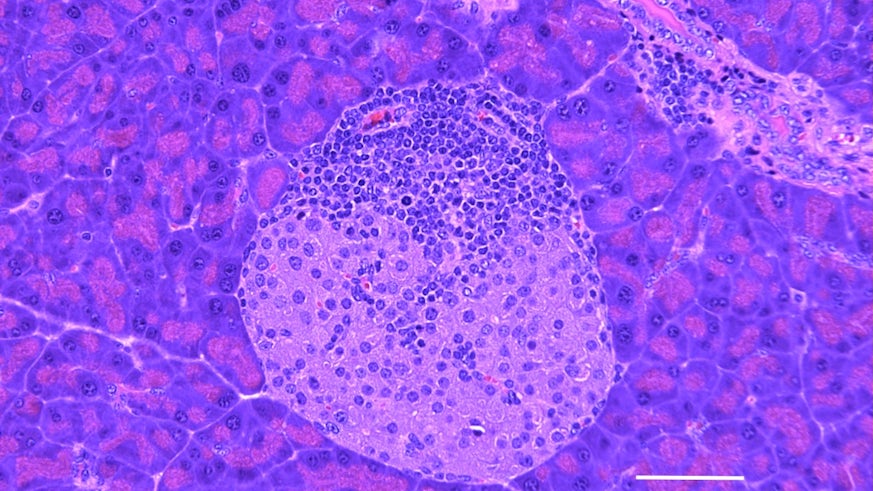How gut microbes can trigger type 1 diabetes
14 September 2016

Bacteria living in the gut can trigger type 1 diabetes in mice, concludes a study by Yale University and Cardiff University.
The new report, published in the Journal of Experimental Medicine, reveals that a small group of bacteria in the gut are able to directly activate killer T cells (a type of white blood cell) to attack and destroy insulin-producing beta cells in the pancreas.
Type 1 diabetes is an autoimmune condition, which means the immune system attacks healthy body tissue by mistake. The damaged pancreas is then unable to produce insulin and control the amount of glucose in the body.
Previous research has suggested that bacteria could be a root cause of damage to the pancreas. Although the new study was carried out in mice, it shows that gut bacteria are a direct means by which killer cells can be stimulated to attack and destroy the insulin-producing cells. It stimulates research into which bacteria may be important in producing this trigger in humans.
Professor Susan Wong, from Cardiff University’s Systems Immunity Research Institute, said: “Our new research provides good evidence for the theory that gut bacteria may trigger type 1 diabetes and actually shows how particular bacteria can stimulate killer T cells, resulting in the attack and destruction of insulin-producing cells, causing accelerated diabetes. This finding may have significant implications for this chronic disease, providing a potential new target for treatment and prevention.”